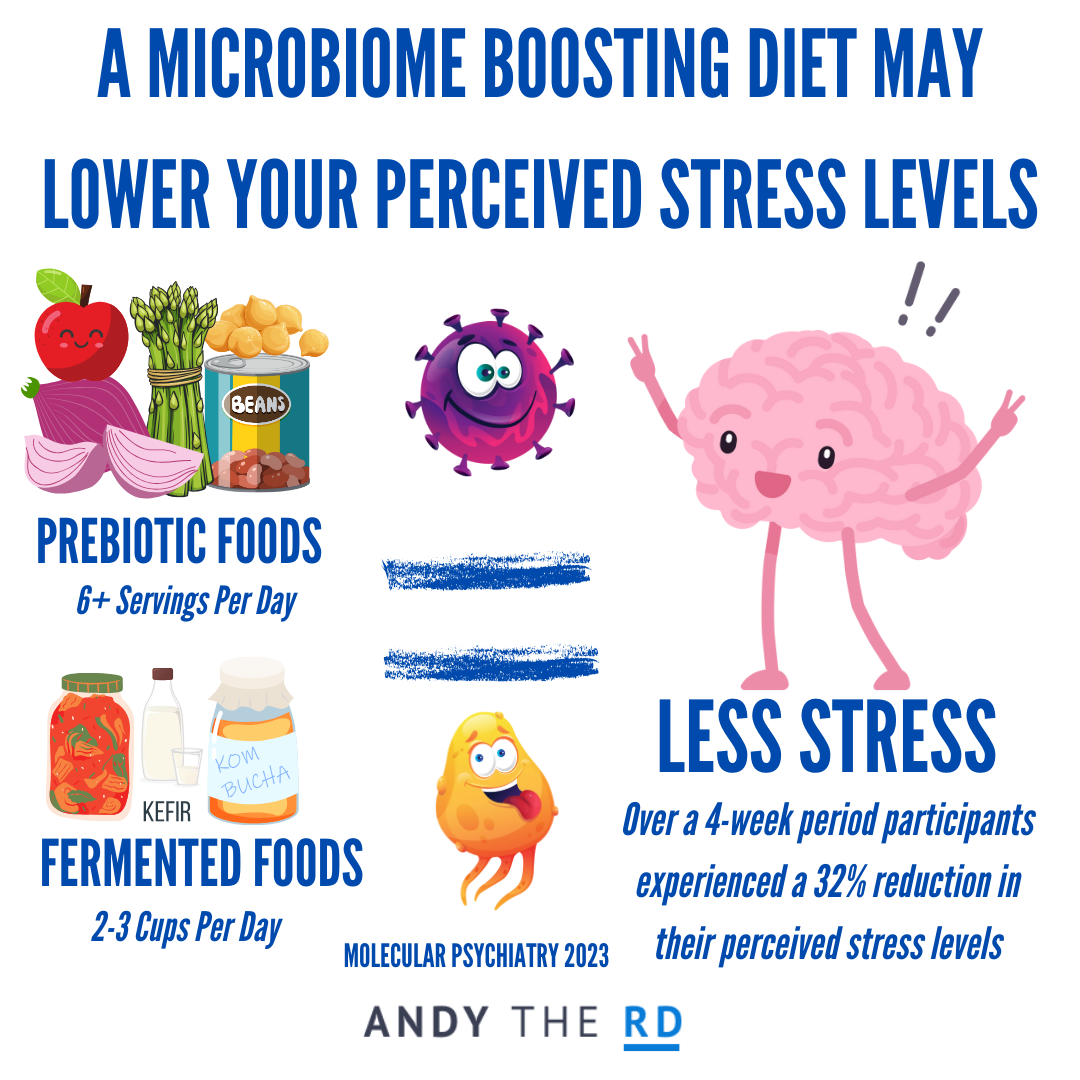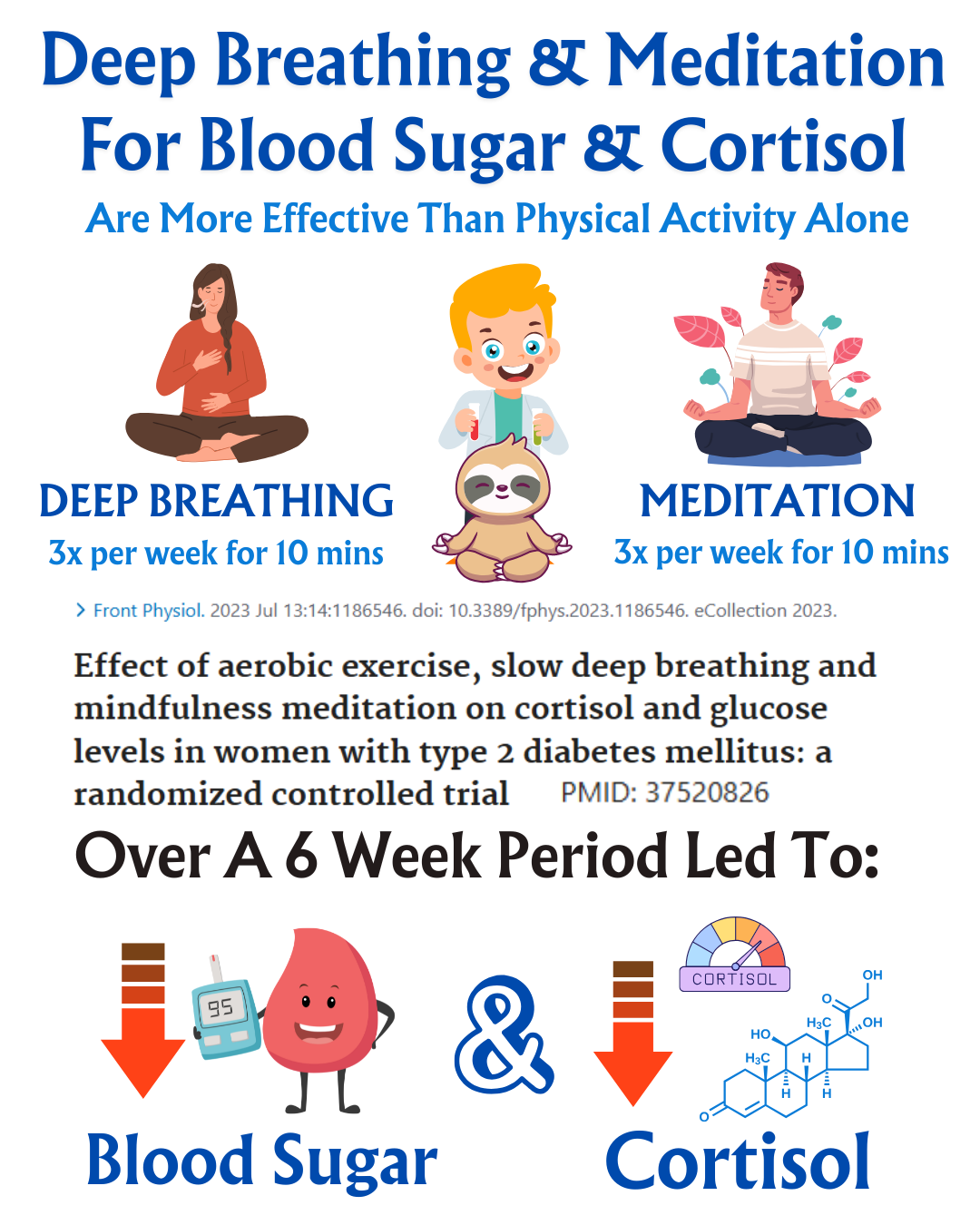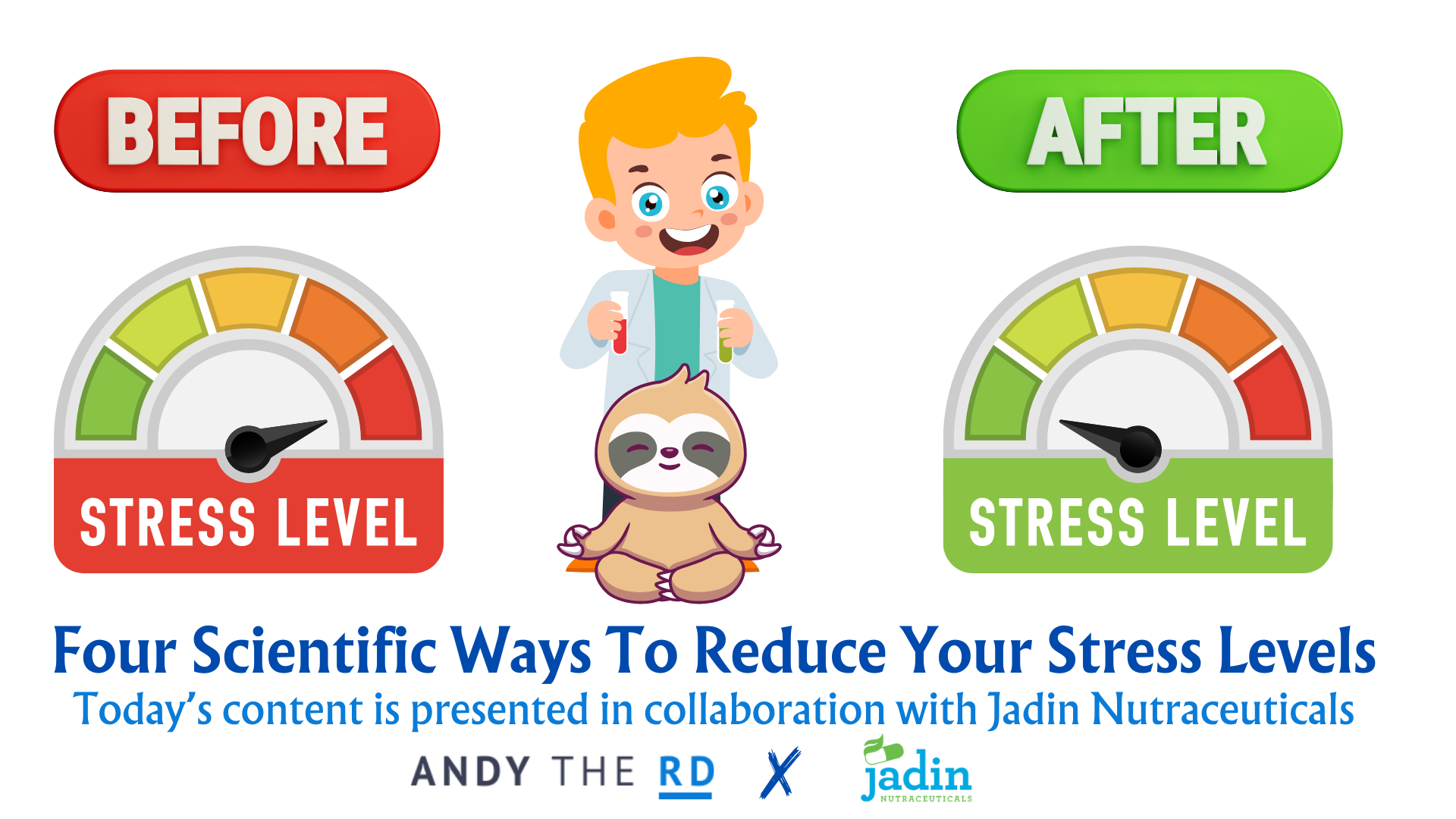The Yerkes-Dodson Law teaches us that there is an optimal level of stress (“arousal”) associated with improving our mental/physical performance, beyond which an additional load begins to have a detrimental effect.

Determining where that point exists is challenging and inevitably varies from person to person, which is why we often use the concept of “perceived stress” to measure how effective different strategies are at stress reduction.
Perceived stress is measured via scientifically adapted surveys and helps to measure how much stress a person feels on an individual level – an important consideration giving the individuality associated with stress.
Statistics Canada data suggests that 1 in 4 Canadian adults ( age 18-65) have a perceived stress level whereby “most days are quite a bit or extremely stressful”.
As a registered dietitian I care a great deal about this topic because inherently I care a great deal about my clients enjoying the best quality of life possible.
Outside of the obvious negative influences of stress on human health, excessive stress also interferes with our ability to eat in the way we’d like to with a recently published study demonstrating that increases in cortisol (the stress hormone) levels similar to what we experience in stressful situations reduce blood flow to the regions of the brain responsible for appetite regulation.
Which brings us to the what we are here to discuss – accessible and evidence-based strategies to reduce your perceived stress levels.
Today’s post is sponsored by Jadin Nutraceuticals, a proudly Canadian made premium supplement manufacturer whose support allows me to research and prepare this content in the best possible way with the views and conclusions provided remaining my own.
With that said, let’s get to the good stuff.
Four Scientific Ways To Reduce Stress
The goal being for this strategies to be equal parts evidence-based and accessible.
#1 Dietary Modification
Given the increasing interest paid to gut-brain communication and the role that our gut bacteria have to play in influencing mental health, it’s no surprise that scientists are very curious about how our microbiome might affect perceived stress levels.
Enter a famous 2023 study out of Molecular Psychiatry which found that a strategically curated diet focused on foods that boost levels of healthy gut bacteria reduced perceived stress levels in participants by 32% within a four week period.

If you are curious which foods they used to bring this diet to life and the amounts you’d need to eat to replicate it, I’ve covered the study in great detail in a previous article.
#2 Breath Work & Meditation
Breath work may be the most universally accessible stress reduction strategy that exists.
In a recent conversation with a naturopathic colleague, I asked for one easy to implement stress management tip that requires nothing external (ie: equipment, smart phone, computer).
Her response: deep breathing.
Deep breathing could be as simple as 10-minutes worth of inhaling and exhaling through the nose where the inhale lasts 4 seconds and the exhale lasts a slightly longer 5.
In a recently published human trial, the inclusion of 10 minutes of deep breathing + 10 minutes of meditation 3x days per week led to decreases in both blood sugar and cortisol (stress hormone) levels in women with type 2 diabetes.

Sound like too much of a time commitment? Well, we have evidence that even as little as 7 minutes of either deep breathing or meditation is enough to measurably reduce perceived stress levels.
Although more commitment is required on your end, yoga is another great suggestion to consider.
Systematic review data looking in this area confirmed that even a single session of yoga and/or meditation is enough to meaningfully influence our stress response and stress management.
Meditation and yoga are, of course, accessible via a wide array of apps and guided YouTube videos.
#3 Nature Exposure
Given that we are entering the spring season there is simply no better time to remind everyone of the value of taking in nature for the betterment of your mental health.
I know this is not necessarily possible at all times for all people, but none the less it really makes a difference.
Nature exposure can include anything from parks, gardens, animals, forests and ravines or other bodies of water.
Growing evidence suggests that as little as ten to twenty minutes of nature exposure per day can improve mental health with a total of minimum of 120 minutes per week being potentially the optimal minimum effective dose – how this gets spread out throughout the week matters less than the total weekly amount and getting it in when you need it most.
#4 Ashwagandha Supplementation
There’s little disputing the fact that Ashwagandha, a herbal remedy commonly used in ayuverdic medicine, is among the most well studied and notable herbal supplements on the market.
A big reason for this is the growing body of good quality human evidence demonstrating that ashwagandha can meaningfully influence stress levels.
Fortunately for us, in late 2024 a systematic review and meta-analysis looking at a total of 9 placebo controlled trials including >500 participants exploring the influence of ashwagandha on human stress was published.
Here’s what they found:
- Ashwagandha decreased perceived stress, anxiety and serum cortisol levels in a statistically significant fashion with perceived stress dropping the most of the three.
- The effective dose and duration ranged from 125-600mg and the usage period was 30-90 days*
*A good way to think about Ashwagandha is a support you use during the weeks or months in the year you know will be more stressed. As always, consult a healthcare practitioner to assure suitability and safety of personal use.
Jadin Nutraceuticals Ashwagandha
Final Thoughts
The goal of today’s article was to offer four distinct but equally accessible and mutually applicable strategies with scientifically demonstrated efficacy to reduce perceive stress levels, cortisol levels or both.
A special thank you again to Jadin Nutraceuticals for supporting today’s content and allowing me to robustly explore, synthesize and share some the best available scientific evidence in this area.
Until next time,
Andy De Santis RD MPH




